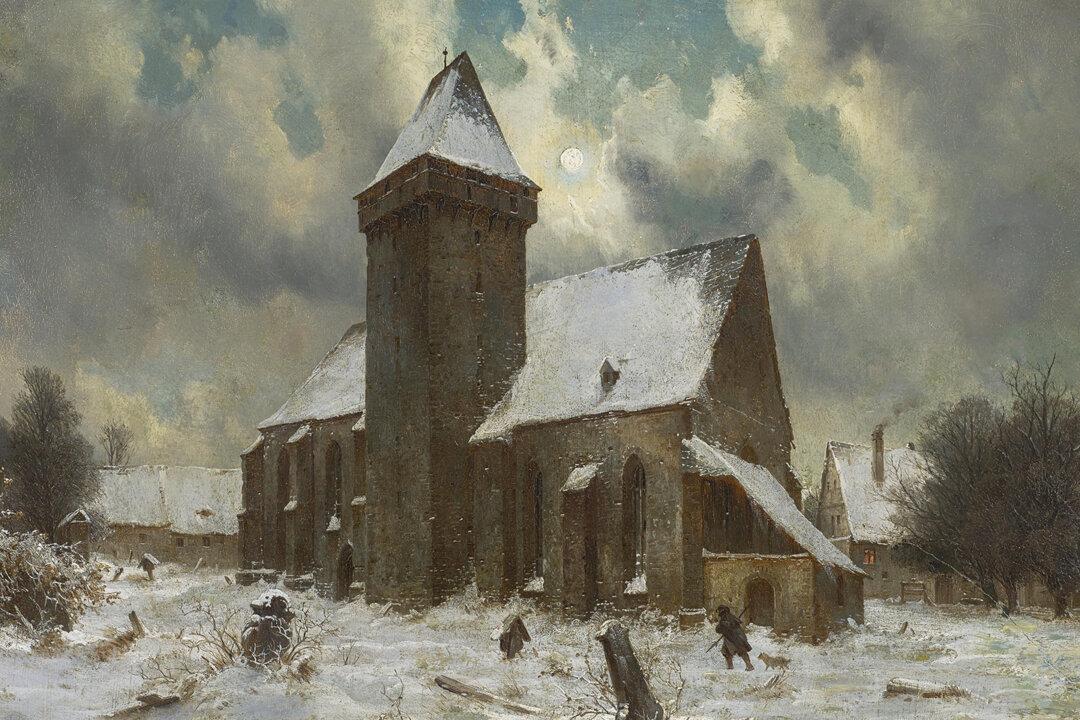Ring out, wild bells, to the wild sky, The flying cloud, the frosty light; The year is dying in the night; Ring out, wild bells, and let him die.
Ring out the old, ring in the new, Ring, happy bells, across the snow: The year is going, let him go; Ring out the false, ring in the true.
So begins Alfred Lord Tennyson’s “Ring Out, Wild Bells,” the last part of his long poem “In Memoriam A.H.H,” an elegy honoring the young poet and essayist Arthur Henry Hallam, Tennyson’s deceased friend and his sister’s fiancé.“Ring Out, Wild Bells” marks a shift in the lengthy poem’s mood from grief and doubt to hope and acceptance as Tennyson (1809–1892) writes of church bells ringing in the new year. These verses became the lyrics for a hymn, often sung around New Year’s Day, and have inspired other musicians as well to set Tennyson’s words to music.






